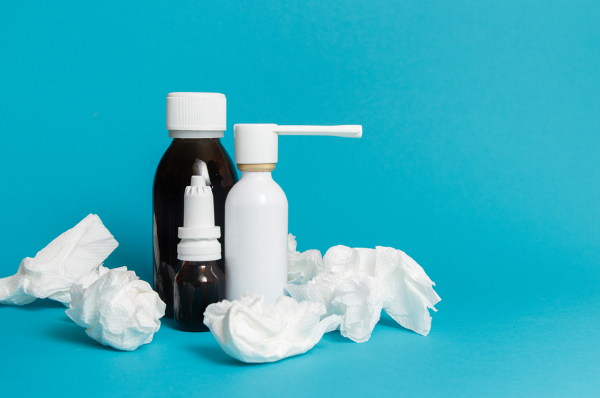A cold is a viral infection that affects the nose, ears and throat. It has symptoms that generally resolve within ten days.
Cold medications don’t “cure” or shorten your cold, but they can ease some symptoms. In most cases, getting plenty of rest and keeping fluids up can do the trick on their own.
Let’s look at commonly used cold remedies. There are a number of over-the-counter medicines that might help relieve symptoms, they include:
Decongestants and saline nasal sprays
Nasal decongestants and saline (salt water) nasal sprays can help relieve a blocked nose. When it comes to decongestants, you can use drops or sprays for up to five days. Prolonged use can cause rebound symptoms. Before using a decongestant, check with your doctor or pharmacist if it’s safe for you.
Expectorants: Help loosen mucus so you can cough it up.
Pain relievers: Ease fever, headaches, and minor aches and pains.
Combination ‘cough and cold’ medicines: These are a combination of the above. Cough and cold medicines often contain paracetamol. Be sure to check the label to avoid overdosing and taking other medicines that may contain paracetamol too.
Complementary medicines: Some may find vitamins (like vitamin C), mineral supplements (like zinc) or herbal medicines (like echinacea) helpful. However, there isn’t enough evidence to show they’re effective in helping to treat or prevent colds.
Antiviral medications
If you’re likely to suffer complications, your doctor may prescribe antiviral medication. These medicines won’t cure your cold, but if they are taken within 48 hours of symptoms they can help:
- Reduce the length of time you are ill by around 1 day
- Relieve some of the symptoms
- Reduce the potential for serious complications
- Stop the virus from multiplying in your body.
Antibiotics
Antibiotics won’t help the symptoms of a cold or stop them from spreading to other people. This is because they are viral infections. Antibiotics are only effective against bacterial infections.
Read and follow the directions on medication labels carefully. If you’re not sure about something check with your doctor or pharmacist.
References:
- http://theconversation.com/the-low-down-on-cold-and-flu-tablets-36481
- https://www.mayoclinic.org/diseases-conditions/common-cold/diagnosis-treatment/drc-20351611
- https://www.healthdirect.gov.au/colds-and-flu-medication
- https://www.health.harvard.edu/cold-and-flu/can-vitamin-c-prevent-a-cold
- https://medlineplus.gov/coldandcoughmedicines.html

